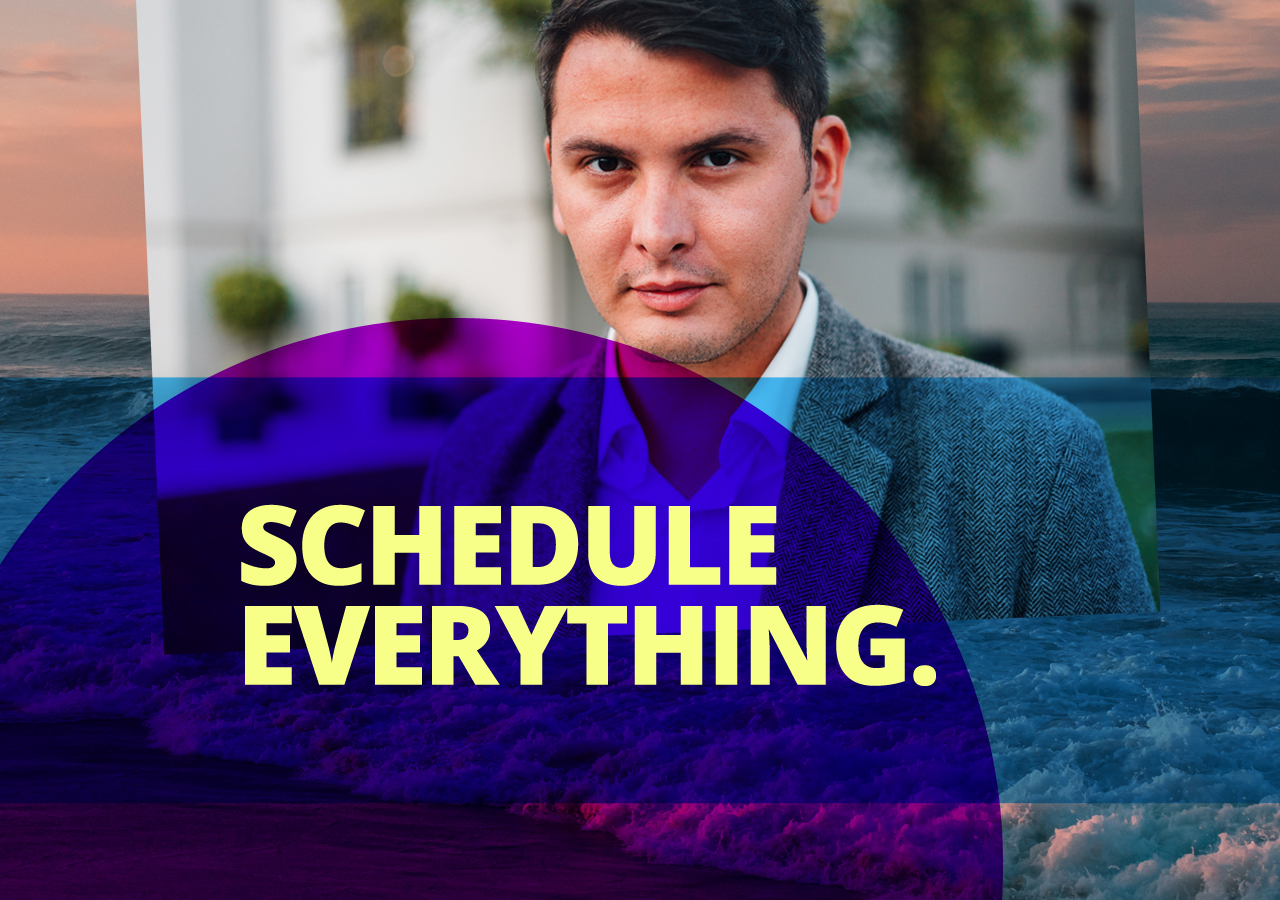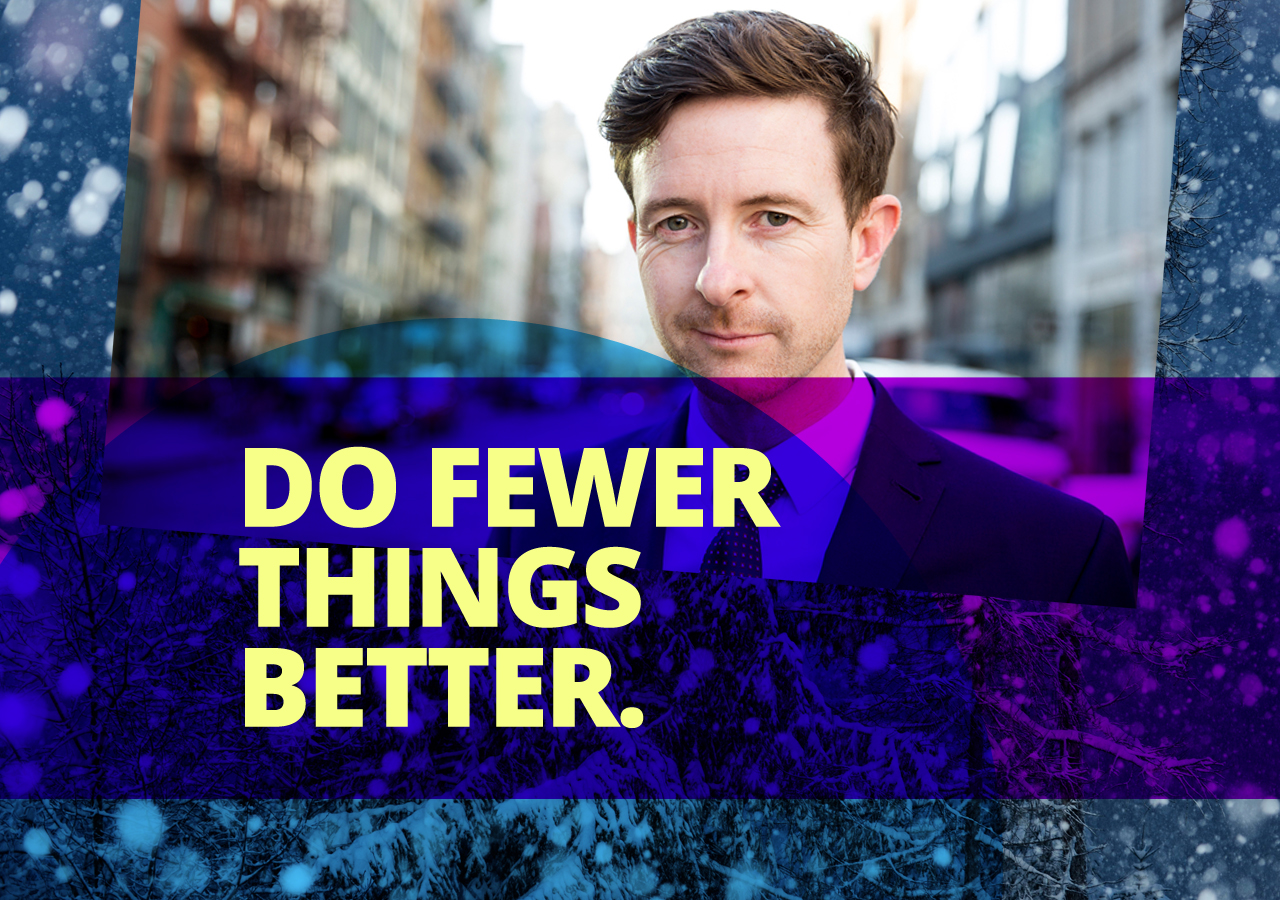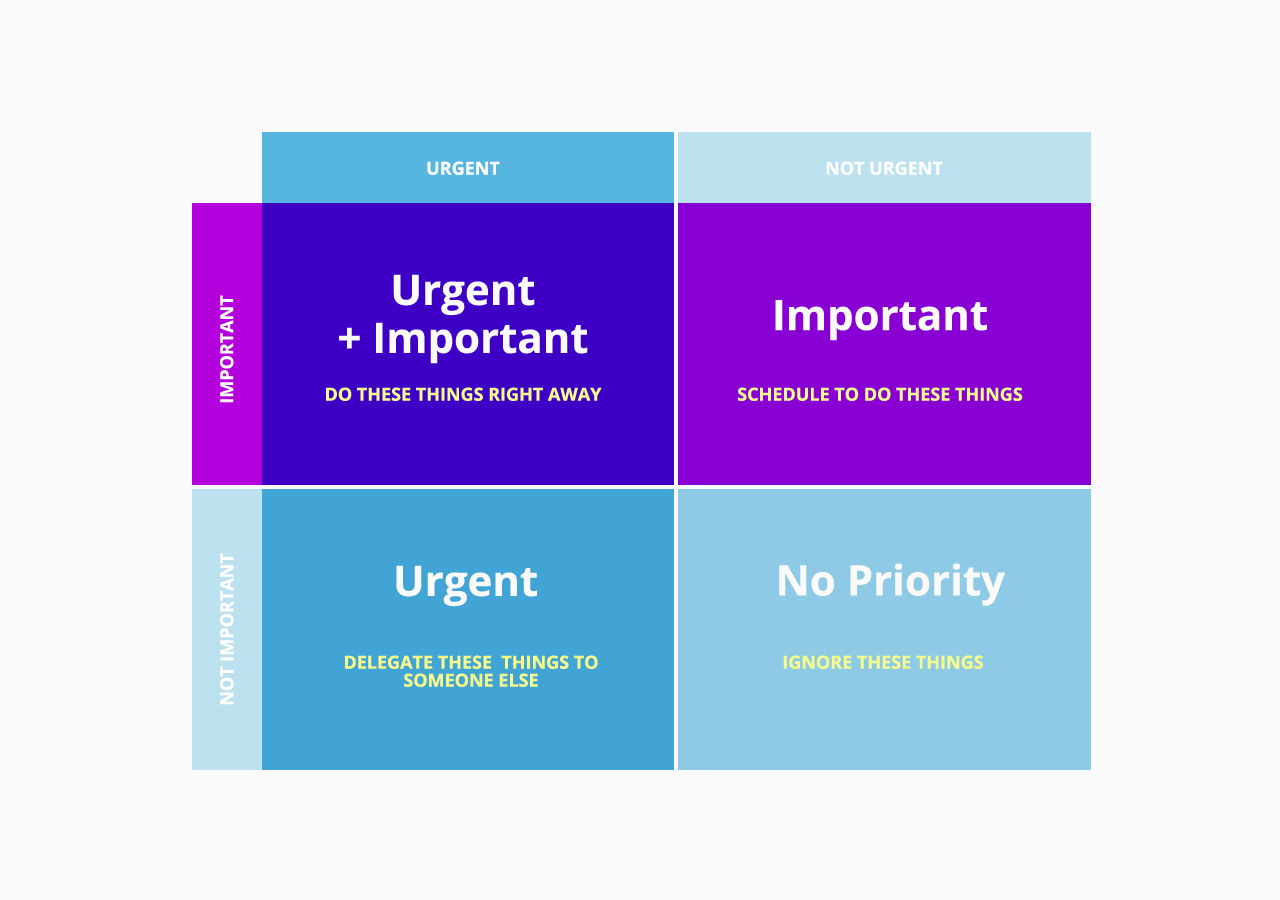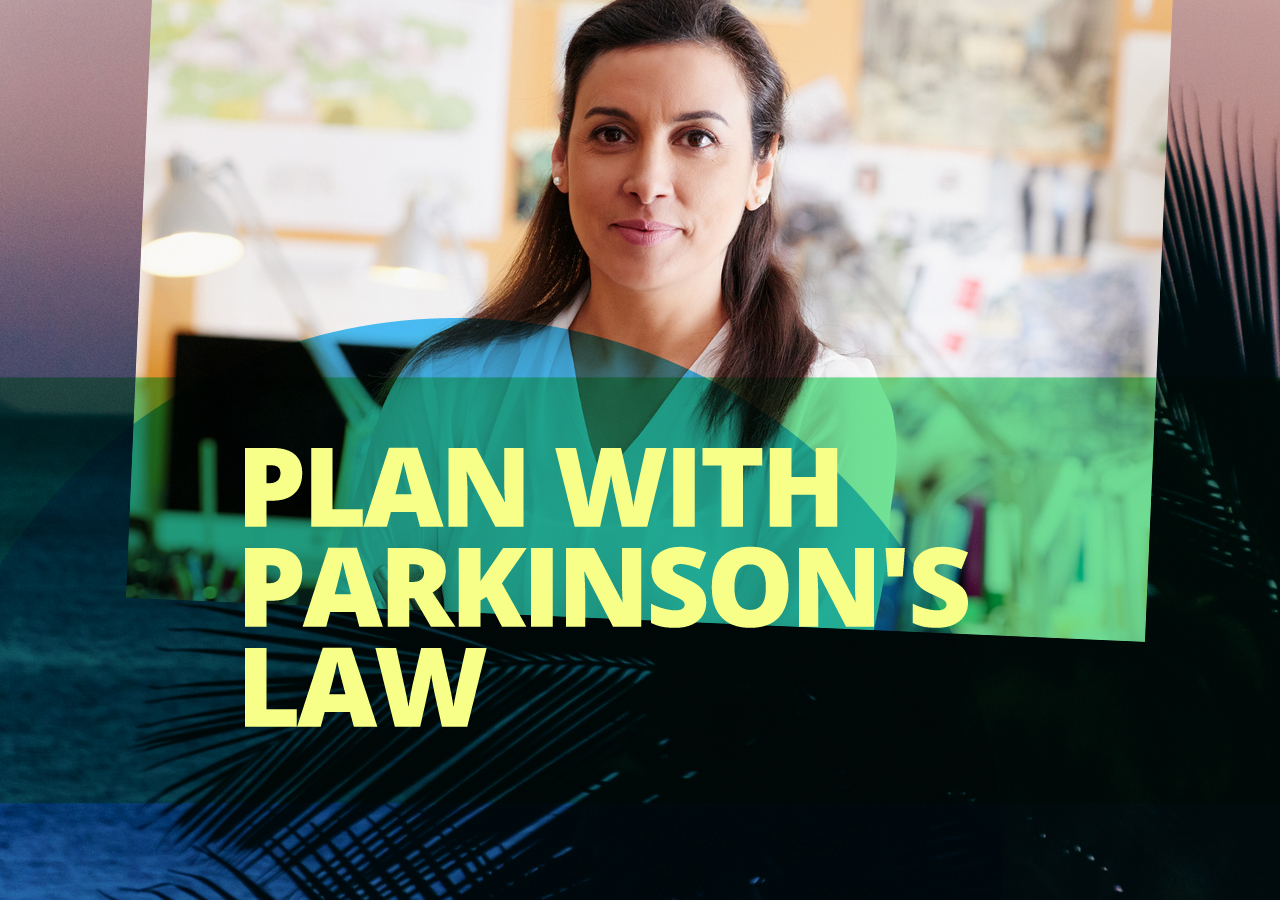[10 min read]
Better ways to stay focused, be ruthless with your time, and get more work done.
by Belle Beth Cooper
Yesterday I started writing an article for a client at around 9 am. It was after 9:30 before I finally felt any real focus in my work. During that first half hour I stopped working to do something completely unrelated almost every five minutes.
The work wasn’t too hard, and I could feel myself getting into it, but I just couldn’t rein in my wandering mind at first.
If you’ve ever dealt with this, you know what an effort it can be to fight an internal battle against yourself. One part of you wants to give in to the distraction, but the other part of you knows this work has to be done.
Daniel Goleman, author of Focus: The Hidden Power of Excellence, says distractions come in two forms: sensory distractions, which come from other people and our environment, and emotional distractions, which come from our own minds.
Out of the two, Goleman says emotional distractions are our biggest problem. They occur when we leave things unfinished. If something is worrying us, or on our mind because it’s not resolved, our brains want to find a solution. Our brains are trying to look after us: helping us find a solution so we won’t worry anymore, but in doing so they cause us to be distracted when we’re trying to focus on something else.
This distraction often occurs as “internal chatter,” which Goleman says causes most of our problems with focus:
It’s not the chatter of people around us that is the most powerful distractor, but rather the chatter of our own minds.
How better planning can stop you feeling overwhelmed
Before we look at measures to “fix” our focus when we’re up against a deadline and can’t quiet our busy minds, let’s look at some preventive measures.
Planning your workload in a way that minimizes your struggle with focus in the first place can take a huge weight off your shoulders. If you’re used to feeling stressed and overwhelmed by how much you need to do, try these techniques to plan ahead more effectively.

Schedule everything
Cal Newport is a king of productivity. He’s a university professor, an author of several books, and somehow finds time to blog regularly, too.
Among Newport’s suggestions for achieving a high level of productivity is swearing off timeless to do lists. Newport schedules every one of his tasks on a calendar. He sees no difference between planned events and work that needs to get done; it all goes onto his calendar. He believes assigning work to a particular time of day ensures it will get done.
Scheduling forces you to confront the reality of how much time you actually have and how long things will take.
Most importantly, says Newport, scheduling “reduces the urge to procrastinate,” thus stopping that inevitable build-up of your workload that comes from putting things off all the time.
You are no longer deciding whether or not to work during a given period; the decision is already made.

Do fewer things better
Another maxim from Cal Newport is that many of us are “drowning in the shallows.” Newport’s referring to busywork—those small tasks that have to be done, but tend to suck up your time so much you can’t get any meaningful work done. Newport calls this shallow work, as opposed to the kind of deep work that can move the needle for your business or your career.
According to Newport, we all tend to get overwhelmed with shallow tasks because we say yes too often. Turning down requests would help us find more time to focus on the deep work that makes a bigger difference in the long-term.
“People say yes to too much,”says Newport. “I say no to most things. I’m ruthless about avoiding or purging tasks if I realize they’re just not providing much value.”
So whether you’re a lawyer, financial planner, contractor or any type of small business owner, Newport would suggest saying no to more of the things that just eat up your time without being truly important to your business or your customers. In all the time you save, you can focus on deep work instead.
You’re judged on what you do best so if you want to have as much success as possible you’re always better off doing fewer things but doing those things better.

Stop trying to multitask
When we have a lot to get done, many of us fall into the trap of multitasking. Thinking it will make us more productive, we’ve all bought into the idea that doing multiple things at once is the way to get ahead.
I used to think I was a great multitasker, until I found out science shows
multitasking isn’t even possible. It turns out, what we think is multitasking is actually just switching very quickly between multiple tasks. And the worst news is, our brains take a tiny amount of time to adjust every time we switch between those tasks, so we’re actually wasting time and brain power in the long run.
Science has also shown multitasking leads to slower work, and worse performance on multiple tasks, whereas if we did one task at a time we’d work faster, and produce a better end result.
Prioritize with the Eisenhower matrix
The Eisenhower matrix is a tool I turn to every time I feel like my workload is overwhelming me. It’s designed to help you understand the status of each of your tasks so you can figure out which ones to get started on, and which ones to ignore or put off.

If you’re a visual thinker, this is a useful exercise to do on a big sheet of paper or a whiteboard with coloured markers.
To use the matrix, draw out the four squares and label them as follows:
– Top left: urgent and important
– Top right: important but not urgent
– Bottom left: urgent but not important
– Bottom right: not urgent and not important
Then, either using your task list or just dumping out tasks as they come into your mind, write down everything you need to work on. As you add each task, think hard (be as honest as you can) about where they fit.
What feels urgent or important to you will be different to everyone else, because it depends on your priorities, your goals, and the type of business you run. So it’s up to you to be honest about which of your tasks are truly urgent and important, and which tasks only seem that way.
Once I’m done adding all my tasks, I like to read through everything I’ve written down and re-evaluate each task. Sometimes a second pass will make me realize some of my tasks belong in different squares, so it’s worth checking each one.
When you’re finally done, you’ll be able to see what you should get done immediately (urgent tasks), what will help you move your business forward (important tasks), and what should be delegated, postponed, or cancelled (not urgent, not important).

Plan using Parkinson’s Law
We all fall prey to tricks of the mind. Our brains have evolved to have particular biases in the way we think, and these biases affect how we make decisions. But being aware of those biases can help us overcome them to some degree.
Parkinson’s Law is one such bias. This old adage states that “work expands so as to fill the time available for its completion.”
In practice, this means that if you plan a full day to write a report, it will take you a full day to get it done. But if you plan only two hours to write that same report, it will take you two hours.
We tend to use up all the time we have available for our work.
You can use this to your advantage when planning, so you don’t use up more time than is necessary. If you have two weeks to finish a report that could be done in half that time, bring your deadline forward to push yourself to work on it faster. You’ll have that second week free to do other work, and you’ll be more productive overall.
You don’t want your work to suffer, so don’t squeeze work into periods that are definitely too small for it, but shortening your schedule by a little can put just enough pressure on you to get started on something you would have otherwise put off for longer. The less your work drags out, the faster you can move on to other things and keep moving your business forward.
How to get your focus back
It’s all well and good to plan ahead, but none of us can be focused on our work 100% of the time. So what can we do when our best planning efforts have let us down, and we’re feeling overwhelmed and unfocused anyway?
Luckily, there are a few techniques proven to help in this situation.
Spend time in nature
Nature tends to recharge us so we can focus better. If you’re lucky enough to have a park or forest nearby, try taking a walk there when you’re feeling overwhelmed.
Walking itself can be useful for clearing your mind, but one study found walking in a park, surrounded by nature, does a better job of switching off our brains so they can recover than walking in a city street.
City streets tend to be full of stimuli that require our attention so we can stay safe and not get in the way: horns blaring, traffic lights changing, people bustling around us, and traffic to look out for. Natural settings, on the other hand, tend to have a calming effect—perhaps due to the lack of threats to our safety in a quiet park.
Do something you enjoy
Whether it’s your internal chatter, stress, or something else, if you have a lot of noise in your mind it can be impossible to focus on anything. Doing great work requires a quiet, focused mind.
In his book Focus: The Hidden Power of Excellence, Daniel Goleman explains that doing an immersive activity you enjoy can help your brain recharge. For instance, if you already know how to play a musical instrument, and do so for fun, this is a perfect refocusing activity. Playing an instrument requires your focus, but if you’re playing music you’re familiar with you won’t work your brain the same way you do when working or learning something new. This immersion in something that takes your focus without working your brain gives your mind a chance to recharge before you return to work.
The key is an immersive experience, one where attention can be total but largely passive. — Daniel Goleman
Take real breaks
One of the worst habits a lot of us have these days is to rush through our downtime. Whether it’s eating as we drive, taking our lunch back to our desks, or trying to multitask so we can be productive while spending time with family or friends, these habits are counter-productive.
Get more natural light
Most of us are used to working under harsh, artificial light these days. Offices are often kitted-out with lights designed to be cheap and efficient, not to increase productivity. Unfortunately, they can do the exact opposite.Harsh lighting can cause eye fatigue over time, making it harder for our eyes to focus. In turn, this makes it harder for our brains to make sense of what we’re seeing, and our productivity suffers. Natural lighting is far better for yourself and your employees. Working near natural light sources has been shown to improve productivity and decrease the number of sick days taken. Scientists aren’t sure why this is yet, but one theory is that since natural light helps to calibrate your internal body clock, it may improve sleep for employees who regularly work in natural light. It may also improve awareness during the day, as sunlight tells our bodies we should be awake and alert.
Key Takeaways
1. Your mind is your biggest distraction. It’s not the chatter of people around us that is the most powerful distractor, but rather the chatter of our own minds. Try not to leave concerns unresolved when you need to focus on getting things done.
2. Schedule everything. Scheduling forces you to confront the reality of how much time you actually have and how long things will take.
3. Do fewer things better. Many of us are “drowning in the shallows” of busywork. Try to spend more time on the things that truly matter for your business.
4. Stop trying to multitask. Multitasking doesn’t exist, and trying to do it will just slow you down and decrease your performance. Focus wholly on one task at a time.
5. Prioritize your tasks. Use a tool like the Eisenhower matrix to help you understand the status of each of your tasks so you can figure out which ones to get started on, and which ones to ignore or put off.
6. Plan your time using Parkinson’s Law. If you plan a full day to write a report, it will take you a full day to get it done. But if you plan only two hours to write that same report, it will take you two hours. So, move your deadlines up a reasonable amount to get more done in less time.
7. Reclaim your focus. When you’re feeling lost or overwhelmed, reclaim your focus with a walk in nature or some time spent on an enjoyable hobby. And if you can, try to get more natural light into your workspace.
A final reminder
Don’t forget, you are your biggest distraction. If you’re having trouble focusing, check in with yourself to see whether your brain is mulling over something you’ve left unresolved. Getting your focus back can sometimes be as simple as following up with that customer, or scheduling a meeting to discuss that issue that’s weighing on you.

Author’s Corner
Belle Beth Cooper
Belle B. Cooper is an iOS developer and writer. She’s also a co-founder of Hello Code, a Melbourne-based startup.
Let an expert guide you.
Beam Local helps professionals launch better websites, outrank their competition on Google, and attract better customers for their businesses.
Or Call +1 (855)-831-4530 and Ask for Kyle
